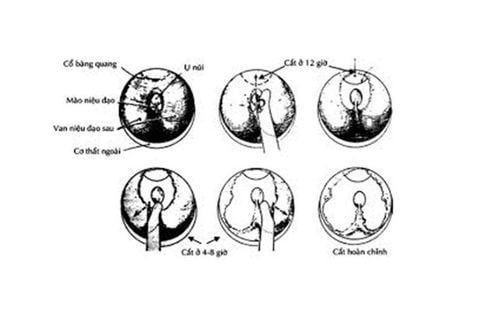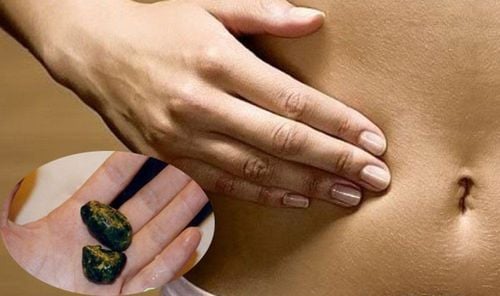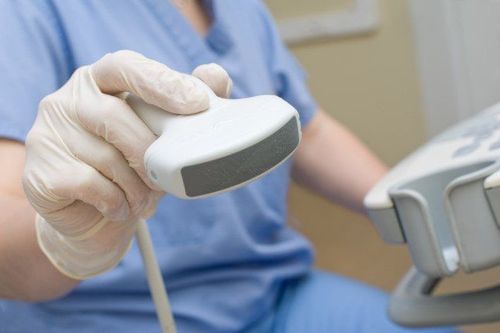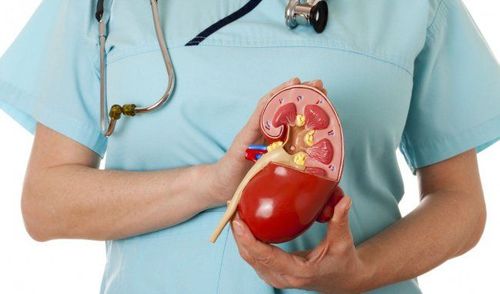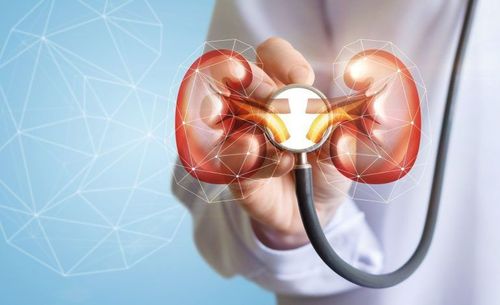This is an automatically translated article.
Frequent urination means having a need to urinate more than usual. It can disrupt a normal routine, disrupt sleep cycles, and this could be a sign of an underlying medical condition or related to kidney disease.
1. What is continuous urination?
Peeing is the body's way of getting rid of waste. Urine contains water, uric acid, urea, and toxins and waste products that are filtered from within the body. The kidneys play an important role in this process. Urine remains in the urinary bladder until it reaches the point of fullness and the urge to urinate. At this point, urine is expelled from the body.
Continuous urination is not the same as urinary incontinence, which refers to little bladder control. Constant urination just means needing to go to the bathroom to urinate more often. It can happen along with urinary incontinence, but it's not the same.
Most people urinate 6 to 7 times in a 24-hour period. Constant urination can be defined as needing to urinate more than 7 times in a 24-hour period while drinking about 2 liters of fluid.
However, this condition is different for each individual, and most people only see a doctor when urinating becomes so frequent that they feel uncomfortable. Children have smaller bladders, so it is normal to urinate more often.
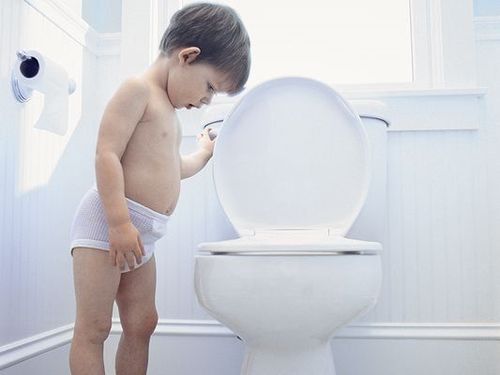
Trẻ em đi tiểu thường xuyên hơn 7 lần trong một ngày
2. What causes constant urination?
Lifestyle-based causes of frequent urination include drinking lots of fluids, especially if they contain caffeine or alcohol. At night, this can disrupt the sleep cycle with the urge to urinate. Frequent urination can also develop as a habit.However, constant urination can also be a sign of kidney or ureter problems, urinary bladder problems, or another medical condition, such as: diabetes mellitus, diabetes insipidus, pregnancy or prostate problems.
Other related causes or factors include:
Use of diuretics, such as chlorothiazide: Medicines used to treat high blood pressure and flush excess fluid out of the body, causing frequent urination. Food and drink act as diuretics Stroke or other neurological diseases Urinary tract infections Pelvic tumors Interstitial cystitis, an inflammation of the bladder wall Overactive bladder syndrome (OAB), which causes involuntary bladder contractions that make the patient feel a sudden urge to urinate. Bladder cancer Bladder or kidney stones Urethral stricture Diverticulitis A sexually transmitted infection (STI), such as chlamydia

Bệnh lây truyền qua đường tình dục cũng là yếu tố dẫn tới đi tiểu nhiều lần
Pregnancy: During the early weeks of pregnancy, the growing uterus puts pressure on the bladder, causing frequent urination. Diabetes: Frequent urination with abnormally large amounts of urine is often an early symptom of both type 1 and type 2 diabetes as the body tries to get rid of glucose through the urine. Prostate problems
3. Diagnose the cause of frequent urination
To diagnose the cause of the urge to urinate, the doctor will perform a physical exam and take a medical history, asking the following questions:
Do you take any medications? Are you experiencing any other symptoms? Is urinating continuously all day or only at night? Do you drink more water than usual? What is abnormal urine color? Do you drink alcohol or caffeinated beverages? Depending on the results of the physical exam and medical history, the doctor may order tests, including:
Urinalysis. The microscopic examination of urine also includes a number of tests to detect and measure various compounds in the urine. Cystogram: A test that measures pressure inside the bladder to see how well the bladder is working; This test is done to determine if there is a muscle or nerve problem that is causing problems with the bladder holding or releasing urine. Cystoscopy: A test that allows your doctor to look inside the bladder and urethra using a thin, light instrument called a laparoscope. Neurological tests: Diagnostic tests help doctors confirm or rule out the presence of a neurological disorder. Ultrasound: An imaging test that uses sound waves to visualize internal body structures.
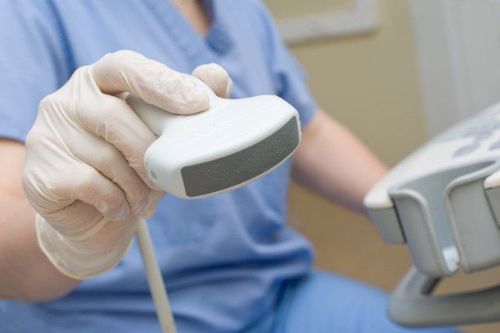
Xét nghiệm hình ảnh có thể sử dụng để chẩn đoán nguyên nhân đi tiểu liên tục
4. Treatment of constant urination
Treatment will depend on the underlying cause of the urge to urinate.
If diabetes is the cause, treatment will involve controlling blood sugar levels. For bacterial UTIs, the typical course of treatment is antibiotic and pain medication. If the cause is an overactive bladder, a medicine called an anticholinergic may be used. These prevent abnormal involuntary muscle contractions from occurring in the bladder wall. If necessary, drug treatment will be prescribed and monitored by the doctor.
5. Prevents constant urination
Following a balanced diet and maintaining a healthy lifestyle can help regulate urine output. This means you should limit your alcohol and caffeine intake and eliminate foods that can irritate your bladder or act as a diuretic, such as chocolate, spicy foods, and artificial sweeteners.
Eating foods rich in fiber can also help relieve constipation. This can indirectly improve urine flow through the urethra, as a constipated rectum can put pressure on the bladder, urethra, or both. You should drink enough to prevent constipation and concentrate your urine. Avoid drinking right before bedtime, which can lead to nighttime urination.
Constant urination can be a sign of drinking a lot of water and nutrition, but it can also be an early sign of many diseases. Therefore, in the event that you need to adjust your diet and lifestyle, but your urinary condition does not improve, you should go to a medical facility for examination and treatment.
Recommended video: Methods of treatment and prevention of urinary tract disorders
Periodic health check-ups help detect diseases early, so that a treatment plan can achieve optimal results. Currently, Vinmec International General Hospital has general health checkup packages suitable for each age, gender and individual needs of customers with a reasonable price policy, including:
Health checkup package general Vip Standard general health checkup package Patient's examination results will be returned to your home. After receiving the results of the general health examination, if you detect diseases that require intensive examination and treatment, you can use services from other specialties at the Hospital with quality treatment and services. outstanding customer service.
To register for examination and treatment at Vinmec International General Hospital, you can contact the nationwide Vinmec Health System Hotline, or register online.
Please dial HOTLINE for more information or register for an appointment HERE. Download MyVinmec app to make appointments faster and to manage your bookings easily.
SEE ALSO:
What disease does urinating many times a day warn about? Why is urine sediment? Determination of calcium in urine




